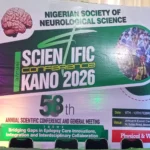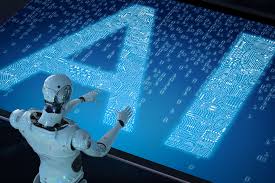By Kayode Adebiyi, News Agency of Nigeria (NAN)
In the ever-evolving landscape of education, a powerful new force is emerging– Artificial Intelligence (AI).
Far from being a futuristic concept, AI is already deeply impacting how students learn, how teachers teach, and how educational institutions are being managed.
At best, it promises a limitless revolution in personalised learning, administrative efficiency, and access to knowledge.
Generally, AI is reshaping everything thinkable, including the global economy and education resources.
According to a PwC case study, AI enables a broader range of people to access and benefit from powerful tools simply through natural language interaction by removing the need for specialised expertise.
The PwC report also projected that AI is expected to contribute up to 15.7 trillion dollars to the global economy by 2030.
“Often compared to transformative inventions like electricity and the printing press, AI could reshape how we live, work, and innovate.
“It is already powering breakthroughs across healthcare, finance, manufacturing, and communication,” it said.
However, some experts warn that this transformative technology also brings a complex set of implications, from ethical considerations to the evolving role of educators.
At the core of its advantage, AI in education aims to enhance the learning experience by leveraging sophisticated algorithms to analyse vast amounts of data.
A lecturer at the Federal University Oye Ekiti, Ekiti State, weighed in.
“The most prominent application is in personalised learning; gone are the days of a rigid, one-size-fits-all curriculum.
“AI-powered adaptive learning platforms can assess an individual student’s strengths, weaknesses, learning style, and pace, then tailor content, exercises, and even the difficulty level in real-time.
“Imagine a virtual tutor always available, providing instant feedback, suggesting supplementary resources, and adapting to a student’s progress.
“This level of individualisation not only makes learning more engaging and effective but also helps students feel appropriately challenged and supported,” he said.
Beyond personalisation, AI also has the potential to transform educational practices by automating administrative tasks, freeing up valuable time for educators.
Mr Gbenga Fagboun, a UK-based AI and Robotics student, said that automated grading of assignments, scheduling classes, managing student records, and even communicating with parents were becoming increasingly common.
“This allows teachers to dedicate more energy to what they do best: fostering meaningful interactions with students, providing mentorship, and designing engaging lessons.
“Tools like Grammarly and Turnitin, for instance, are already assisting with proofreading and plagiarism detection, lightening the load on instructors,” he said.
Some experts say the benefits of AI also extend to improved accessibility.
For instance, AI solutions, such as real-time language translation and speech-to-text transcription, are making learning more inclusive for students with disabilities or language barriers.
Also, AI can help bridge the gap for students in underserved or remote communities by providing access to high-quality learning materials and virtual tutoring.
They, however, warn that this technological leap is not without its challenges and implications, especially as regards learning and education services.
EdTech Founder Dr Leo Evans, said, like other sectors where AI was applied, one of the most pressing concerns of its use was data privacy and security.
“AI systems in education collect vast amounts of sensitive student data, from academic performance to behavioural patterns.
“Ensuring robust privacy protocols and transparency in how this data is collected, stored, and used is paramount to maintain trust and prevent misuse or breaches,” he said.
Another significant implication identified by experts is the potential for algorithmic bias.
According to the Cademix Institute of Technology, the data used to train AI systems is not diverse and representative and the algorithms can perpetuate and even exacerbate existing societal inequalities.
“This could manifest in biased grading systems, admissions decisions, or learning tools that unintentionally disadvantage certain groups of students.
“Addressing bias requires deliberate efforts to ensure inclusive training data and continuous auditing of AI systems.”
Teachflow, a digital platform that provides AI-powered solutions to save teachers time, reduce stress, and improve student outcomes, said the evolving role of the teacher is also a key consideration.
“While AI can automate many tasks, it cannot replace the human element of education – empathy, emotional intelligence, mentorship, and the nuanced understanding of individual student needs.
“The future classroom will likely see teachers working with AI, leveraging its capabilities to enhance their teaching and focus on higher-order pedagogical tasks, rather than being replaced by it.
“This necessitates ongoing professional development for educators to equip them with the competencies to effectively integrate and ethically use AI in their practice.”
However, there are concerns about the potential for over-reliance on AI, which could diminish critical thinking and problem-solving skills if students use AI tools to bypass essential cognitive processes.
An undergraduate at the University of Abuja, who preferred to be anonymous, admitted to relying on AI for his coursework.
“I have very good AI packages that make my work easy; some packages make it difficult to detect plagiarism or whether a student used AI for an assignment.
“To say the truth, it could make a student lazy, but what can we do? The goal is to avoid carryovers,” he said.
Worthy of note, academic dishonesty and plagiarism pose significant challenges, requiring educators to rethink assessment strategies and foster a culture of responsible AI use.
Although there are currently no specific laws or regulations that directly regulate AI in Nigeria, efforts are being made to address the issue.
In 2023, the Federal Ministry of Communications, Innovation, and Digital Economy released a white paper announcing steps to develop a comprehensive National Artificial Intelligence Strategy.
In 2024, the ministry released the draft National Artificial Intelligence Strategy (NAIS) to provide a roadmap for developing a robust framework that would support the ethical and responsible use of AI.
As stakeholders await the NAIS implementation, individual sectors and organisations are already developing policies and guidelines for the use of AI.
For instance, in 2024, the Nigerian Bar Association (NBA) issued guidelines for the use of artificial intelligence in the legal profession to mitigate potential ethical violations by legal practitioners.
The National Open University of Nigeria (NOUN) also recently developed a ‘Policy on the Adoption of Artificial Intelligence in NOUN’.
The university said the policy covers all areas of its operations where AI is adaptable, through which its services and operations are carried out, including project and thesis writing, research, and plagiarism checks.
Stakeholders say the future of AI in education promises even more sophisticated advancements.
“We can anticipate more conversational and human-like intelligent tutoring systems, widespread adoption of virtual and augmented reality, and advanced predictive analytics to identify at-risk students and provide proactive interventions,” Fagboun said.
While AI offers immense potential for personalised, efficient, and accessible education, its integration demands careful consideration of ethical implications, data privacy, and the critical role of human educators.
Experts say AI’s challenges and opportunities in Nigeria’s education system lie in harnessing AI’s transformative power responsibly, ensuring that technology serves to empower both learners and educators. (NANFeatures)
***If used, please credit the writer and the News Agency of Nigeria.












